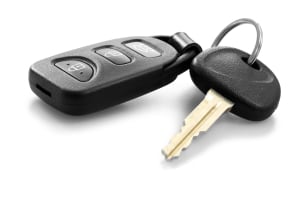Auto Accidents Caused by Older Drivers Impact 14 Million Americans Each Year: Survey
A recent study highlights the number of auto accidents that occur each year where elderly drivers appear to be at fault, adding to the debate about when it is appropriate for families to start talking about whether it is safe for older loved ones to remain behind the wheel.
[imageframe lightbox=”no” style_type=”dropshadow” bordercolor=”” bordersize=”1px” borderradius=”0″ stylecolor=”” align=”left” link=”” linktarget=”_self” animation_type=”0″ animation_direction=”down” animation_speed=”0.1″ class=”” id=””] [/imageframe]The survey results were published by Caring.com, and were conducted by Princeton Survey Research Associates International (PSRAI) from June 4 through June 7.
[/imageframe]The survey results were published by Caring.com, and were conducted by Princeton Survey Research Associates International (PSRAI) from June 4 through June 7.
The findings do not confirm the accidents were actually caused by elderly drivers, but just asked drivers whether they thought the accident or near accident was caused by the elderly driver.
Drivers between the ages 18 to 29 were, by a narrow margin, more likely to blame accidents or near crashes on elderly drivers. According to the survey, 42% of the accidents reported involved drivers of that age range, compared to 41.5% of drivers ages 30 to 49 and 16.5% of drivers ages 50 to 64. However, the survey found that 85% of drivers considered elderly drivers less dangerous than drunk drivers.
Many families and elderly drivers struggle over the decision about whether an individual should continue to operate a motor vehicle or stop due to diminished health, loss of reflexes or other age-related problems that may increase the risk of an accident.
About 30% of respondents in the survey who were 65 or older said family members should decide when to take the keys away, while 26% want to make the decision for themselves. Another 21% say the decision should be made by a doctor or caretaker.
The survey highlights the difficulty younger family members have with this issue, indicating that most people under the age of 65 are reluctant to talk with their elderly relatives about taking the keys away, with 40% saying they’d feel more comfortable talking about funeral arrangements. Just under 30% said that a healthcare professional should be the one to decide when an elderly relative should stop driving.


No Comments • Add Your Comments